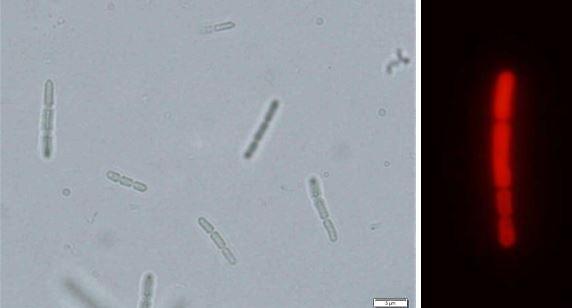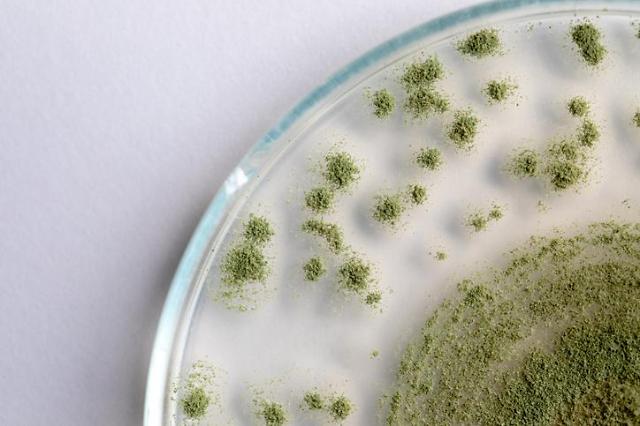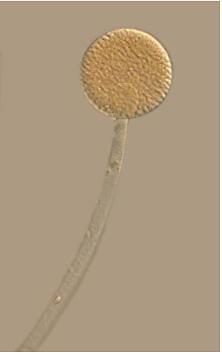
[Courtesy of the Ministry of Environment]
SEOUL -- A state-run research body in South Korea has discovered a method to quickly cultivate a microalgal strain from cyanobacteria, known as blue-green algae, that can produce twice as much biofuel as other microorganisms due to rapid proliferation. The study opened the way for researchers to commercialize cyanobacteria-based carbon-neutral fuels.
Biofuel can be produced from plants or from agricultural and industrial biowaste. The two most common types of biofuel are bioethanol and biodiesel. Bioethanol is made by fermentation, mostly from carbohydrates produced in sugar or starch crops. Biodiesel is produced from oils or fats using transesterification.
A research team from the National Institute of Biological Resources (NIBR) would conduct additional studies to reveal the characteristics of the microalgal strain identified as Pseudanabaena mucicola GO0704 and lay the foundation for genetic engineering research to increase productivity, according to the Ministry of Environment.
"Microalgae also have a greenhouse gas reduction effect that absorbs carbon dioxide, making it a promising next-generation biofuel material," Kim Chang-mu, a senior NIBR researcher, said in a statement released by the ministry on November 3. "We will study how to use it as a biofuel through various research."
GO0704, which contains ethanol and diesel, can be used as biofuels, but optimal growth conditions have not been known. NIBR researchers discovered optimal culture conditions by applying the volatile fatty acid-treated mixotrophic cultivation of GO0704 for the enhancement of biofuel production. The treatment of butyric acid or acetic acid enhanced the growth of cells, resulting in the production of high amounts of biodiesel and bioethanol.
The optimal incubation period was shortened by four days when sodium acetate was added, and the production of biofuels per day more than doubled when butyric acid was added, the institute said, adding that the method can dramatically reduce biofuel production costs because acetic acid or butyric acid is a cheap substance that can be obtained when organic substances such as food waste are decomposed.




